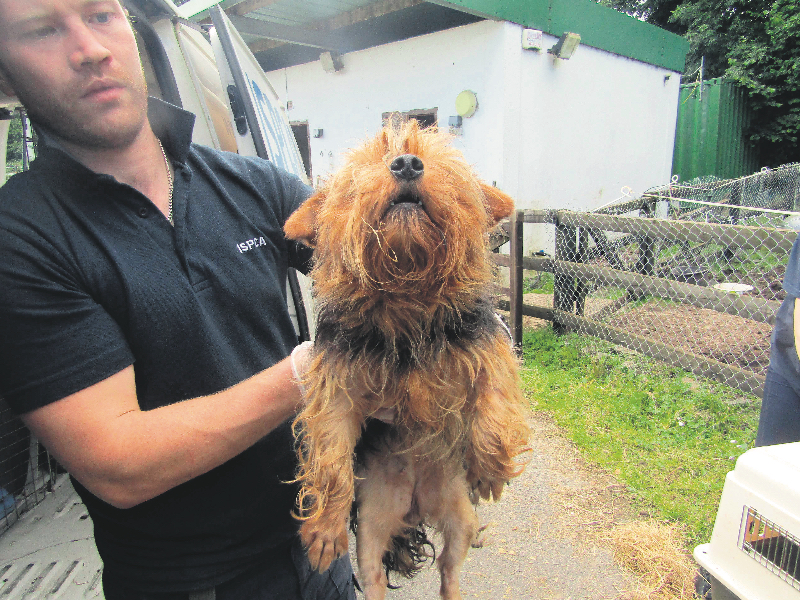A FINGLAS based animal welfare charity is helping to rehabilitate over 40 dogs and puppies removed from a dog breeding facility where they were found living in bare concrete runs caked in their own faeces.
A total of 67 dogs and 23 puppies were taken from the premises after a local authority took action when the operator failed to comply with an improvement notice served under the Dog Breeding Establishments Act.
ISPCA animal welfare officers helped the local authority to remove the dogs, many of which were suffering from serious skin conditions as well as eye and teeth problems requiring immediate veterinary attention.
Dogs Trust in Finglas were alerted to the removal and offered assistance in caring for the distressed canines, taking in seven females with 23 pups, one pregnant female and 12 other dogs. The rest of the dogs are being cared for by the ISPCA.
Dogs Trust Executive Director, Mark Beazley, said the animal welfare charity was pleased to be in a position to assist the ISPCA.
“Following the opening of our dedicated Puppy Wing in 2014, we have the appropriate facilities to care for 20 of the most vulnerable dogs and pups removed from the dog breeding establishment, including seven nursing mums, a pregnant female and 12 other dogs,” he said.
“Our expert team of veterinary staff and canine carers will make sure that these dogs and pups get the best treatment and care during their stay at our Rehoming Centre.
“when the time comes, we will find the perfect homes for them.”
The rescued dogs include Maltese, Bichon Frise, Shih Tzu, Pomeranian and Jack Russell breeds.
They are all under three-years-old and will be neutered or spayed, microchipped and responsibly rehomed by ISPCA and Dogs Trust once they have been rehabilitated.
Both the ISPCA and Dogs Trust say they are encouraged by the action taken by the local authority, but believe that stronger and more consistent regulation of commercial dog breeding is required nationally.
The two organisations are actively engaged in a review of the guidelines that accompany the Dog Breeding Establishments Act and the revised guidelines will allow local authorities to demand higher welfare standards for dogs in such premises.
“The ISPCA would like to thank the local authority involved in this case for enforcing the Dog Breeding Establishments Act effectively and for taking decisive action when it was clear that this breeder was not providing the appropriate level of care for these poor dogs,” said ISPCA CEO Dr Andrew Kelly.
“It is time for a debate on dog breeding on the scale we are seeing in some licensed breeding establishments around the country, some with more than 300 breeding female dogs.
“Recent research has shown that puppies born in intensive breeding farms will have poorer personalities and are more likely to be fearful or aggressive later in life.
“Dogs are not cattle or sheep and have very different welfare needs including the need for socialisation and the company of humans. They simply do not get that in these large scale puppy farms.
“I would also like to take this opportunity to thank Dogs Trust Ireland for their assistance in transporting and rehoming these dogs.”
Anyone with information about rogue breeders or suspicions that an animal is being cruelly treated, neglected or abused are asked to contact the ISPCA National Animal Cruelty Helpline in confidence on 1890-515515 or report online on the ISPCA website.
